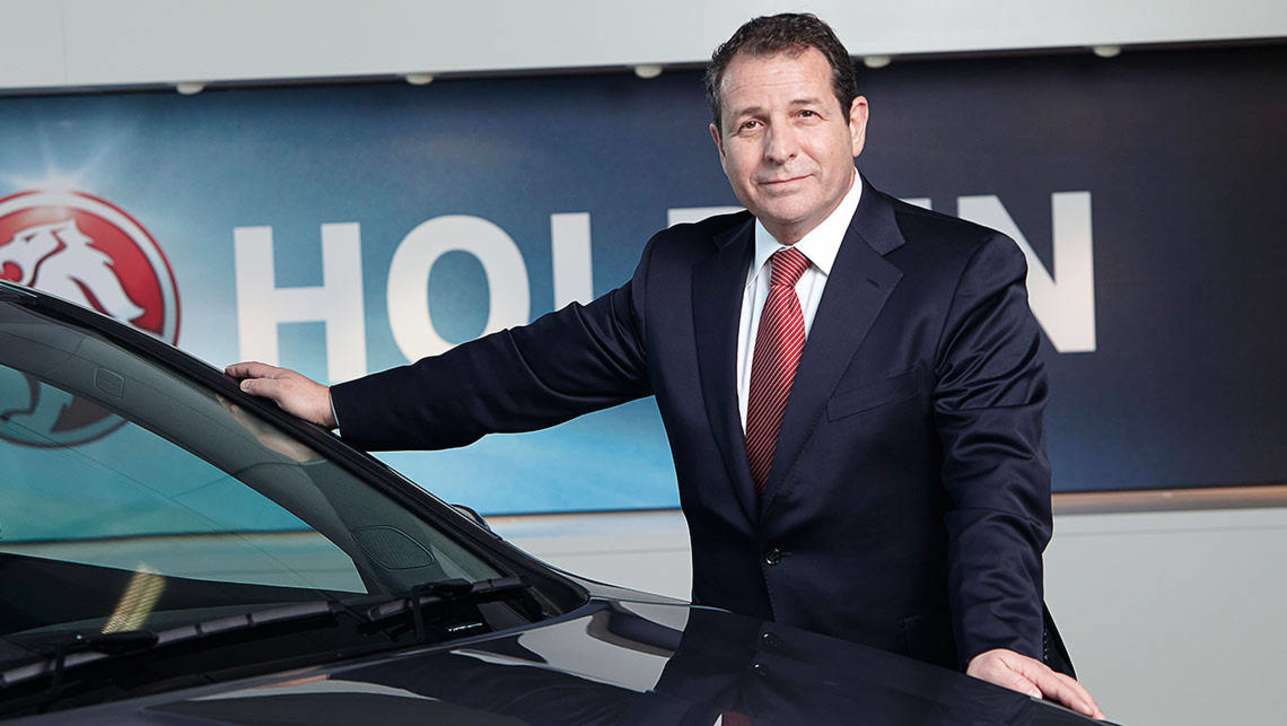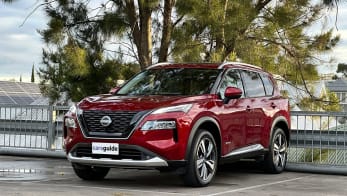Car industry could grind to a halt three years early if Federal Government cuts funding.
The boss of Holden has warned the Australian car manufacturing industry could close early -- prematurely axing up to 50,000 jobs -- unless the Federal Government reverses its election promise to cut $500 million in funding support.
Holden chairman and managing director Gerry Dorizas said without the financial aid promised under the previous Labor Government “some suppliers may not make it to the end of manufacturing”.
“We are very focused on the supplier base because, if that happens, nobody will be able to produce cars that rely on parts made in Australia,” said Mr Dorizas.
RELATED: Holden vows to return to number One
MORE: Holden appoints new boss to oversee shutdown
VIDEO: Holden says its here to stay after factories close
Even though less than half the parts in a new Holden Commodore -- and less than a third of the parts in a Holden Cruze -- are sourced locally, the reality is that the vehicles won’t be able to be completed without unique Australian-made components.
About 65 per cent of the parts in a Ford Falcon and a Ford Territory are made locally, while up to 70 of the parts in a Toyota Camry are sourced here.
The Federal Labor party, the Greens, the Independents and the Palmer United Party -- and, notably, Motoring Enthusiast Party Senator Ricky Muir -- have vowed to block the cuts to industry funding.
Mr Dorizas hopes “logic will prevail” and the budget changes won’t get through.
“The whole industry would like to see the decision (to cut $500 million in industry assistance) reversed,” said Mr Dorizas.
At issue is the fact that hundreds of component suppliers made investments in new equipment three years ago -- for new models being built today -- on the understanding they would receive assistance from the Automotive Transformation Scheme.
But now that sales of locally-made cars have hit all-time lows -- and the industry is due to close by the end of 2017 -- many suppliers are relying on the funding simply to stay open. They are in “dire straits”, said Mr Dorizas.
Earlier this week a spokeswoman for Federal Industry Minister Ian Macfarlane’s office said the government was working with the automotive and manufacturing sectors to “address the changes” occurring in Australian industry.
The government says it has established a $20 million Automotive Diversification Programme, and a $60 million Next Generation Manufacturing Investment Programme to “accelerate private sector investment in non-automotive manufacturing”.
Holden said if the supplier industry survives it still plans to build the Commodore at its factory in the Adelaide suburb of Elizabeth until the end of 2017.
But the aging Cruze small car was always due to reach the end of the line a year earlier, to be replaced by an all-new imported small car.
In only his second interview with local media in Melbourne today, after just five months in the job, Mr Dorizas also warned the Federal Government’s plans to remove restrictions on imported used cars would dent new-car sales and could impact road safety.
A sudden increase in used cars “destroyed” the new-car market in New Zealand more than a decade ago, he said.
Relaxing the rules on imported used cars was intended to put the masses in newer and safer vehicles, but in fact the average age of cars on New Zealand roads has actually increased from 11 years to 13 years since the changes.
Last year, Australia’s road toll hit an 89-year low, in part due to half a decade of record new-car sales. Most cars on sale today have six airbags and a five-star safety rating.
But the average age of cars in Australia (although getting younger, at 9.9 years) is still much older than other developed countries such as North America, Japan and the UK, whose car fleet average age is six to eight years.
Mr Dorizas repeated Holden’s plan to be the top-selling car brand in Australia by 2020, just three years after shutting its factories.
Holden’s biggest sales year on record was in 2002 with 178,000 sales, the last time it was market leader before Toyota started its 11-year dominance.
It’s a big call because Holden hasn’t been at the top of the sales charts for 11 years, last year posted its lowest sales in 20 years, a tally of just 112,000 vehicles.
But so far this year Holden is enjoying its first sales surge in four years, up 6.6 per cent in a market that is down by 2.4 per cent year-to-date.
Six of the Top 10 brands are down, including market leader Toyota (down 4.8 per cent), Mazda (down 1.4 per cent), Ford (down 5.4 per cent), Nissan (down 21.4 per cent), Mitsubishi (down 12.3 per cent) and Subaru (down 2.7 per cent).
Mr Dorizas said the new-car market will become more fragmented -- “the pie will be eroded” -- and it was unlikely Toyota would be able to maintain a 20 per cent market share, a rate of one in five of all new cars sold.
“We do want to be number one, where we once were,” said Mr Dorizas. “It’s not a stretch target.”
Mr Dorizas said in the coming years Holden would fill its showrooms with vehicles from all around the General Motors world that best fit the needs of Australian customers.
For example, he said, “we are going to have the upper versions of the Astra next year … to bring in more affluent customers”.
Holden is also working on a significant facelift and overhaul of the Colorado ute due next year.
In two years, the Holden Captiva SUV is likely to replaced by a seven-seater from the US, the new generation Chevrolet Equinox.
When asked why Holden has issued more recalls so far this year than any other year on record, Mr Dorizas said it was about “transparency” and indicated Holden was being more cautious and issuing safety bulletins even though some other brands lobby Australian authorities to have the faults dealt with as a “dealer service campaign”, which don’t need to be advertised publicly.
Holden said its negotiations with a support package for factory workers who will be out of a job by the end of 2017 were “on track”.
“Holden has always respected our employees and that’s not going to change,” said Mr Dorizas.
Holden spokesman George Svigos added: “The EBA negotiations are continuing hope to conclude in the coming weeks.”
Holden says it will set up “transition centres” from next month where employees can discuss career options.



.jpg)



.jpg)

.jpg)
.jpg)
.jpg)

.jpg)






.jpg)

.jpg)

.jpg)




.jpg)

Comments